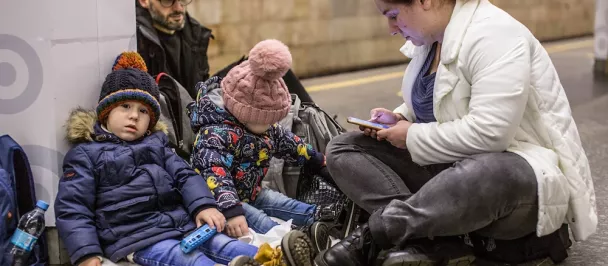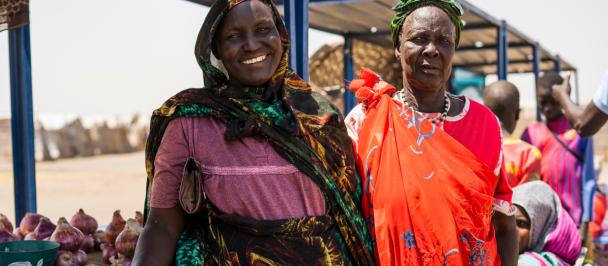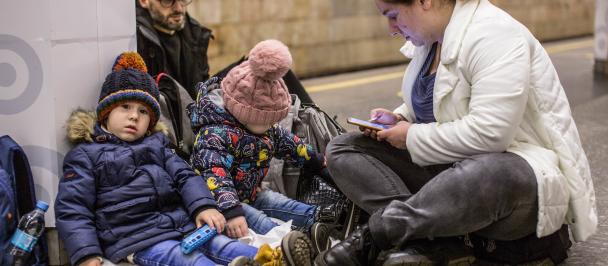Your Excellencies, Distinguished delegates, Ladies and Gentlemen,
It is a great privilege for UNDP to be invited to this important Summit in Quito, Ecuador. I would like to commend excellent organization of the Forum and great leadership of Ecuadorian chair. Your Excellency, Ambassador Santiago Chavez Pareja, the themes of this Summit could not be timelier to take stock of the year after the affirmation of the Global Compact for Migration at the end of 2018, and to renew our commitment to sustainable development as we start the Decade of Actions for Achieving Sustainable Development Goals this year.
Since the Director General of IOM Mr Vitorino ably addressed the role of the GFMD and how complementary it can be with the UN Network for Migration in implementing the Global Compact for Migration, I as a representative of the development agency, would like to focus on development and migration in an effort to find ways to aim higher to foster human development in a way that current and future generations can fulfil their potential.
Ladies and Gentlemen,
Allow me to start my remarks from this notion: “Migration is a driver of development, but also an indicator of incomplete development.”
In order to contribute to a better understanding of the relationship between migration and development, UNDP has launched in 2019 a report entitled Scaling Fences. This is an extensive study exploring the perspectives and experiences of nearly 2000 individuals who migrated through irregular routes from Africa to Europe. This study highlighted that migration is a reverberation of development progress across Africa. The development is, however, not fulfilling the aspirations of young Africans. What forces youths to leave the continent is not just unemployment, but other socioeconomic challenges in Africa. The study put forward some policy choices, in particular the need for transformative development, which will expand opportunities and choices in Africa, facilitating circular migration, and public engagement that defines a new discourse about the migration.
Decade of Action: Ten Years to Transform Our World
The Decade of Action for achieving the Sustainable Development Goals (SDGs) calls for accelerating sustainable solutions to overcome inequality, poverty and climate crisis among others. Migrants represent 3.5% of the world's population but contribute nearly 10% of global gross domestic product (GDP). Achieving the SDGs means addressing almost all the key objectives of the Global Compact for Migration. The achievement of the SDGs depends, more than ever, on the ability of local and regional governments to promote integrated, inclusive and sustainable development. In this respect, integrating the Mayoral Forum process in GFMD is an important step forward. Migrants are therefore central agents in this endeavor and should be engaged as such to transform our world.
So what needs to happen? I would like to share the following four insights to make migration work for sustainable development:
First and foremost, Migration should be driven by choice - It is essential to address the negative drivers and structural factors that force people to leave their country of origin, in unsafe often desperate and dangerous conditions. In the Latin America and the Caribbean region for example, the factors that force people to move usually involve lack of economic opportunities, high levels of inequalities and insecurity, weak governance and civil unrest, climate-induced disasters among others. To address this, we need a prevention angle to create the social conditions that will allow for sustainable results. This means, for instance, addressing citizen security, improving rule of law, helping with institutional reforms, adequate public investment, changes in the relationship between the State and communities, targeted climate action and the adoption of more modern and effective systems of information and intervention. Multi-disciplinary and multi-stakeholder support is needed at all levels––local, national, regional and global––to design and implement comprehensive public policies. We look forward to the discussion in this aspect at future GFMD.
Secondly, we need to harness the positive contributions of migrants for sustainable development. Integration of migrants in a safe, orderly and regular manner is socio-economically beneficial. Integrating immigrants for example, in employment, education, housing, health, and community engagement is estimated to add between $800 billion to $1 trillion to the global economy on a yearly basis. If managed well, international migration can be socially and culturally a productive experience for diverse communities, while reducing risks and vulnerabilities, and protecting human rights. Public authorities should be supported to develop public services and infrastructure to deal with rapid population increases, and to promote civic coexistence and social cohesion.
Together with IOM, UNDP is supporting 11 countries[1] on the inclusion of migrants in development plans and of their access to services such as decent work, health, education, etc.; improving institutional capacities and promoting private sector development for migration. In Ecuador, up to 2018, through the Joint Migration and Development Initiative (JMDI), we supported the Provincial Government of Pichincha with the social, economic and cultural integration of mixed migrant flows through an inclusive approach.
Up to the end of 2019, more than 1.6 million Venezuelans fled their country and settled in Colombia. UNDP created the Frontera de Oportunidades (Border of Opportunities) project, which strengthened institutional and community capacities for reception and integration of migrants, and for security and peaceful coexistence and reduce xenophobia.
Thirdly, more work is need to Connect youth to skills and jobs - In both, the country of origin and destination, building capacity and connecting youth to skills and jobs can create new opportunities. Introducing new digital technologies can enable and empower youth to be competitive and globally connected. This helps them have better options and choices and minimizes the possibility of undertaking hazardous jobs as unskilled migrants.
An innovative platform called YouthConnekt was launched in Africa with various partners including UNDP, private sector and government that brings together young people looking for employment, skills or resources for starting-up their own business. First launched in Rwanda in 2013, this initiative is now rolled out to 14 countries throughout Africa. Likewise, in Belize, UNDP has supported youth life-skills to prepare for workplace environment and helped solve practical problems that could be barriers to employment, for example, legal identification papers.
Fourthly, the power of diaspora network should be leveraged for sustainable development in their home country. Diaspora can transfer not only remittances but also new skills and knowledge invaluable for development to their home country. Estimates show that the accumulated external financing flows to especially rural areas in the form of remittances over the next five years will reach $1 trillion, which will help to address various SDGs. Here are some examples of such work.
Together with the Governments of Moldova and Switzerland, UNDP’s diaspora/migrants and local development programme established over 150 Hometown Associations in Moldova. Around 10,000 migrants abroad participated and, thus far, more than 300,000 local people have benefitted from improved services such as road infrastructure, street lightening, waste management, and others. In Lebanon, the Lebanese diasporas are given a structured opportunity to support community-based initiatives and people in need through donating funds or contributing time. To date, this initiative has benefitted over 1.5 million underprivileged Lebanese people through construction, irrigation, health, education, and others.
Partnerships: Key Prerequisite for Success on Migration
Ladies and Gentlemen,
No country can do this alone. Partnerships and collective actions are a key prerequisite for success on migration. We will continue to collaborate with our partners in the UN Migration Network, which is ably coordinated by the IOM Director General António Vitorino, as well as with civil society organizations and the private sector, to better support countries in fast tracking the implementation of the Global Compact for Migration, anchored in the 2030 Agenda for Sustainable Development.
Ensuring that Member States own the process of implementing the Compact and have the capacity—that is, the expertise, the financial and the non-financial resources—is a key prerequisite for achieving the objectives of this agreement. For that purpose, the commitment and support to the Migration Multi-Partner Trust Fund (Migration MPTF) should be leveraged .
UNDP looks forward to a strengthened partnership with the Global Forum for Migration and Development.
The clock is ticking. We have 10 years to transform our world. It’s time to deliver on migration and development. It’s time to deliver on safe orderly and regular migration.
Muchas gracias.

 Locations
Locations




